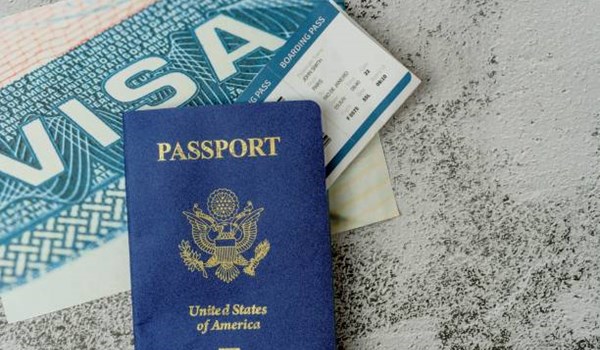
UK: IHT Top Concern For Wealthy Individuals
New research released this week by RBC Wealth Management (part of the Royal Bank of Canada) looks at the top financial concerns of wealthy individuals across the UK in 2024. Inheritance tax, gifting
In news that will be welcomed by new migrants to New Zealand, returning New Zealanders, and the business community, the Government has confirmed reforms to the Foreign Investment Fund (FIF) rules with the introduction of a realisation-based calculation method.
The FIF rules determine how New Zealand tax residents are taxed on holdings of less than 10% in overseas companies. There are several methods available to calculate the taxpayer’s taxable income under the FIF rules. These effectively tax unrealised capital gains, in circumstances where there is usually no cash receipt with which to pay the tax. They also result in the double taxation of migrants who become subject to the FIF rules while also remaining subject to taxation on their investments in their former country of residence (this is particularly common for migrants from the United States).
In December 2024 the New Zealand Inland Revenue published an official issues paper ‘Effect of FIF rules on immigration: proposals for amendments’ and called for submissions on the proposals. We, like many others, submitted that the Government should introduce a realisation-based FIF calculation method to apply to investments acquired by migrants before they become New Zealand tax residents. In particular we felt that the proposed ‘revenue account method’ (i.e. taxation of realised gains) would be the most practical and equitable way to reform the FIF rules.
The Government has confirmed it intends to introduce this calculation method and has released preliminary information as to how it will apply.
Under this method, taxpayers will be taxed based on dividends received as well as actual gains when they sell the offshore shares. Further, they will only be subject to tax on the gain attributable to the period after becoming tax resident in New Zealand and then only 70% of that capital gain will be taxable. It appears that tax will apply at the taxpayer’s marginal tax rate.
This method will apply from 1 April 2025 for migrants who become fully tax resident in New Zealand (i.e. after the expiry of their transitional tax residence status) on or after 1 April 2024. It will also apply to returning New Zealanders who have been non-tax resident for a particular period of time (likely less than the ten year period after which a returning New Zealander becomes eligible for transitional tax residence). Trustees of trusts will also be able to apply this method, provided that the principal settlor of the trust would be eligible to use it.
The revenue account method will be optional, meaning that taxpayers can still choose to use existing FIF methods if they prefer.
For most taxpayers, the new method will only apply to investments in unlisted entities. However, those who remain subject to tax on a citizenship basis in their home country will be able to apply the method to all of their FIF interests. Again, this is expected to primarily benefit citizens of the United States who remain subject to tax in the United States by virtue of their citizenship, irrespective of them becoming tax resident elsewhere.
If a taxpayer subject to the FIF rules later loses New Zealand tax residency, it is likely that they will be treated as if the FIF interests were sold at their market value immediately prior to losing tax residency. It is likely that this so-called “exit tax” will be applied to the notional gain derived on the deemed disposal, although specific details of this exit tax have not yet been released.
These changes are expected to be included in the next Tax Bill, which is likely to be introduced in August 2025. This Bill will undergo the standard select committee process, allowing for public submissions and feedback.
Importantly the Government has indicated that further reviews of the FIF rules (as they apply to existing New Zealand tax residents, which we hope might include expanding the revenue account basis to listed shares held by non-United States citizens) and related international tax settings (which we hope will include the application of the financial arrangements regime to new migrants) will take place later in 2025. This is part of an ongoing effort to ensure New Zealand remains an attractive destination for skilled migrants and investors and indeed an attractive place for New Zealanders to remain.
We have been vocal in our support for reform of the FIF rules for many years. They are complex, time consuming, can unfairly result in double taxable and are expensive to comply with. The rules are a significant inhibitor to globally mobile capital and talent (whether new migrants or returning expatriates) coming to New Zealand. There are still details to be worked through but in our view direction of the reforms is very positive.
The reforms are part of a broader Government effort to attract talented individuals and their capital to New Zealand. Other examples include the reformed Active Investor Plus rules and expected reforms to the Overseas Investment Act 2005.

New research released this week by RBC Wealth Management (part of the Royal Bank of Canada) looks at the top financial concerns of wealthy individuals across the UK in 2024. Inheritance tax, gifting

The Internal Revenue Service has wrapped up its annual Dirty Dozen campaign, which it self-proclaims as “the worst of the worst” tax scams. The last few scams in the series leave a lot to be unpacked.

The meeting was part of a joint mobilisation strategy by the two leaders to strengthen global action under the Paris Agreement and build momentum for stronger national climate plans to be announced

Australia has axed its so-called “golden visa”, which granted wealthy overseas investors the right to live in the country. Designed to attract foreign business, it was cut in an immigration